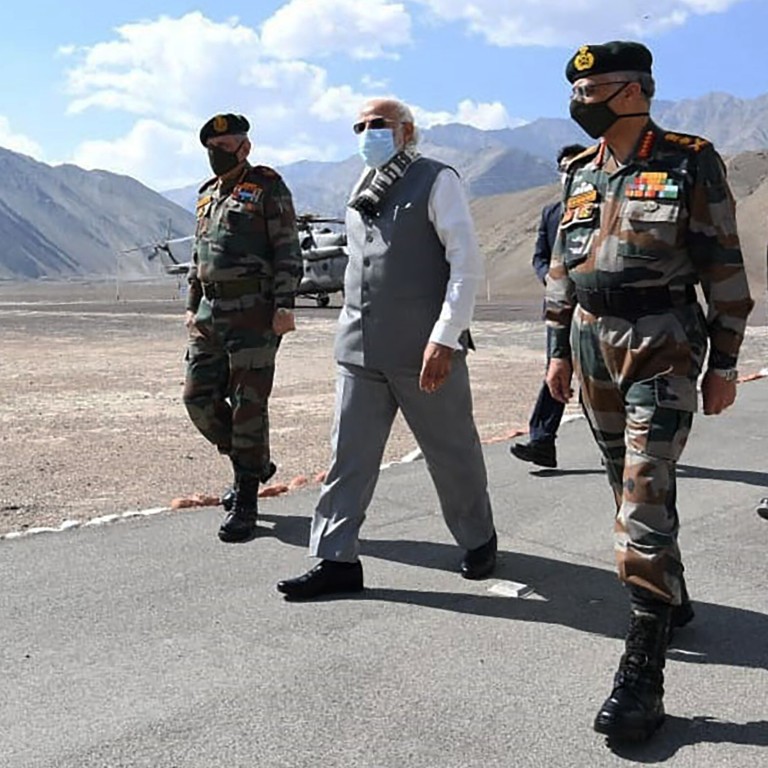
US-India relations continue to warm as Modi and Trump exchange Independence Day tweets
- Secretary of State Mike Pompeo affirms Washington’s support for New Delhi in call with Indian External Affairs Minister
- Prime Minister Modi and President Trump also exchange warm messages in US Independence Day tweets
Beijing has long been wary of Washington’s support for New Delhi and Chinese analysts have argued that an improvement in India-US relations can only go so far.
Citing unnamed sources, The Indian Express reported on Sunday that US Secretary of State Mike Pompeo had expressed “Washington’s support to New Delhi at that time of crisis” in a call to Indian External Affairs Minister Subrahmanyam Jaishankar around 10 days ago. Pompeo also said the US would provide India with intelligence on Chinese activity along the border.
“While I wouldn’t say China is worried by expressions of support by the US for India, of course China does not want to see India move towards the US,” said Wang Dehua, an expert on India at the Shanghai Municipal Centre for International Studies. “The US may prefer to fan the flames and watch, but I don’t think India will succumb to US influence.”
Under Modi’s leadership, India has paired military moves with a series of economic retaliations against China, including banning 59 Chinese mobile apps such as TikTok and WeChat, from the Indian internet and limiting Chinese investment in the country.

03:08
India bans dozens of Chinese apps, including TikTok and WeChat, after deadly border clash
India plans to speed up its military build-up in the Andaman and Nicobar archipelago in the eastern Indian Ocean in light of the border clash and to counter increasing Chinese activity in the region, The Times of India reported on Saturday.
But India is also planning for future rounds of diplomatic engagement with China. The government is preparing for a meeting between the “special representatives of India and China on the boundary questions,” according to a report from The Hindu newspaper, which cited unnamed sources. The last round of such meetings were held in December 2019 between Chinese Foreign Minister Wang Yi and Indian National Security Adviser Ajit Doval.
The US has turned out to be a more trustworthy partner to India in the border conflict with India than other partners like Russia, argued Madhav Nalapat, a professor of geopolitics at India’s Manipal Academy of Higher Education.
“Russia has sought to convince India that it needed to be patient and then Beijing would come around. The US warned from the start that this would not happen.”
Russia has maintained that China and India would be able to work out tensions between themselves, and said it would not attempt to mediate the conflict. In contrast, Trump offered in late May to mediate a de-escalation of rising China-India border tensions, a month before the violence erupted.
“In India the contest for influence is between the old friendship with Moscow and the new friendship with Washington. Events since May on the border are changing this balance,” Nalapat said.

